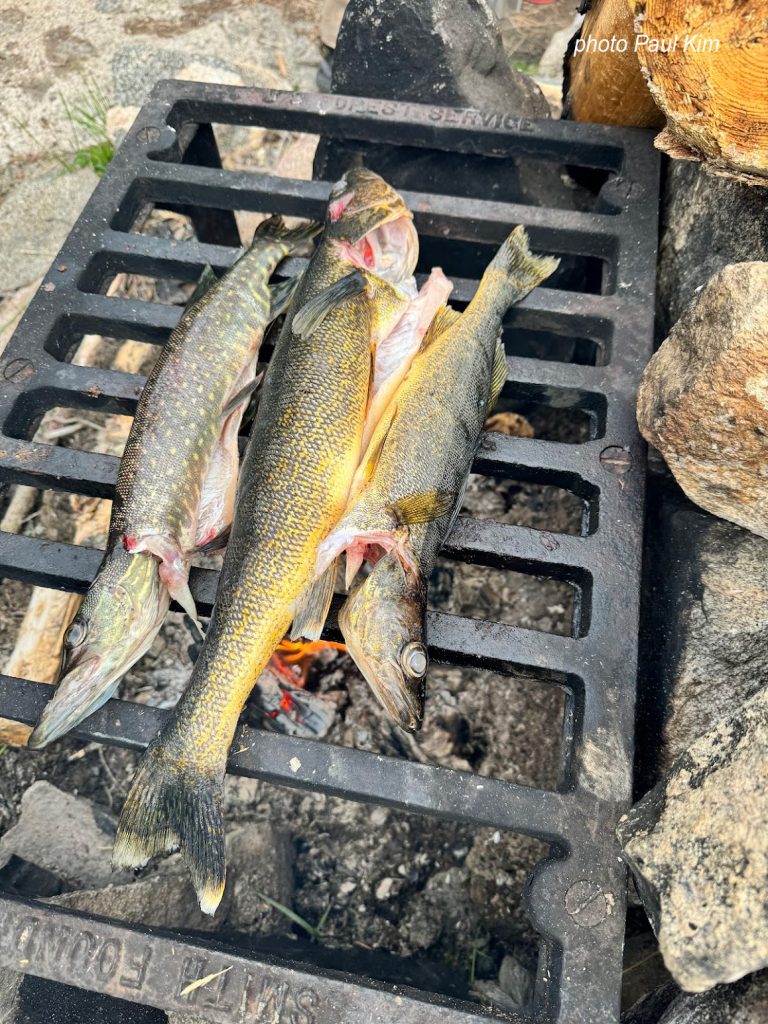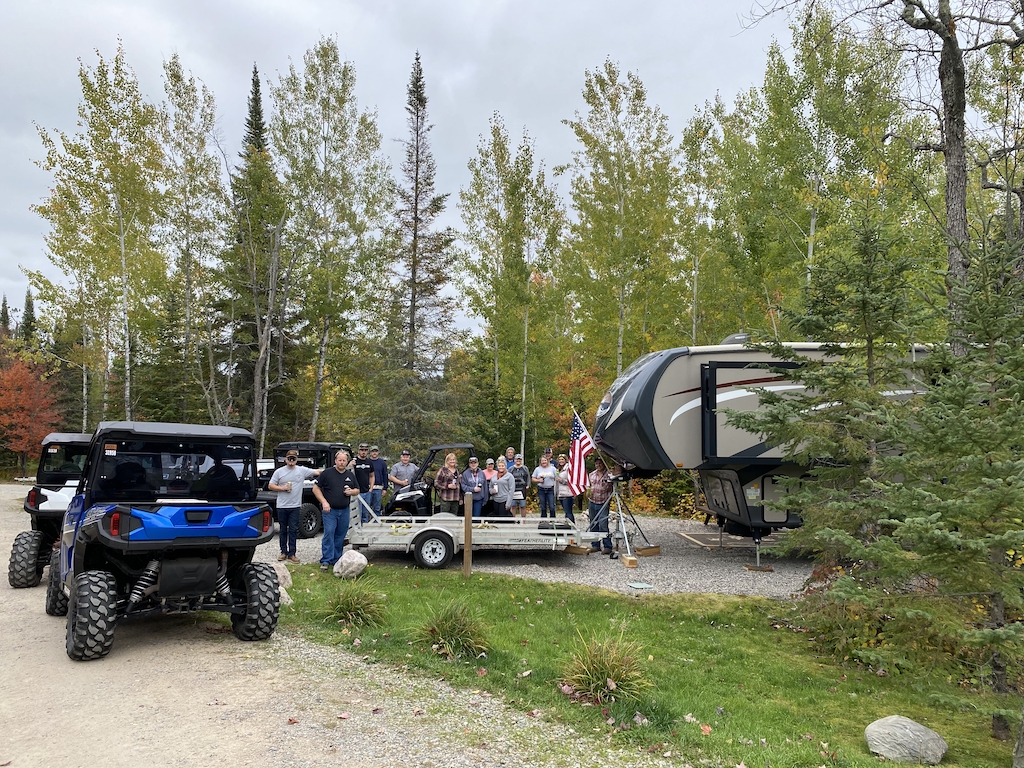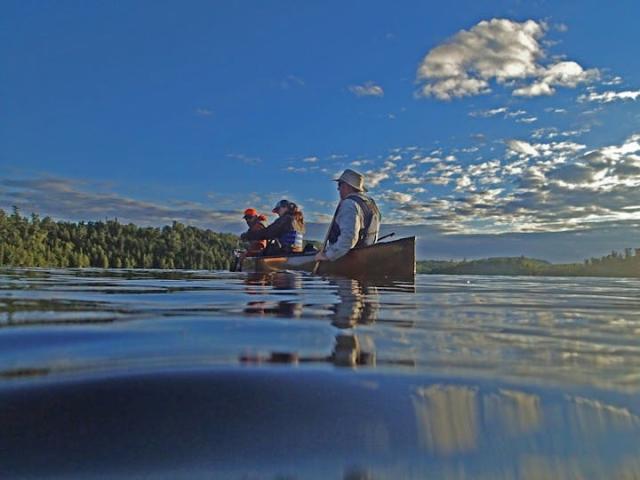First timers must avoid overpacking and failing to check weather conditions. These mistakes can lead to unnecessary challenges.
Canoeing the Boundary Waters is an exhilarating adventure that demands careful preparation and awareness. First-time canoeists often make common mistakes that can turn an enjoyable trip into a stressful experience. Overpacking can weigh down the canoe and make paddling difficult.
Checking weather conditions is crucial for safety and planning. Understanding these critical aspects ensures a smoother and more enjoyable journey. This guide will highlight seven key mistakes to avoid, making your first canoeing trip in the Boundary Waters both memorable and safe. Proper planning and awareness of potential pitfalls can vastly improve your canoeing experience.

1. Choosing The Wrong Canoe
Always think about weight. A heavy canoe is hard to carry. Stability is also key. Stable canoes are safer for beginners. Consider durability. A strong canoe can handle rocks and rough waters. Size matters too. Bigger canoes can carry more gear but are harder to paddle. Material is important. Aluminum canoes are tough but heavy. Fiberglass is light but can crack. Cost should be in your budget. Expensive canoes may offer more features.
| Type | Pros | Cons |
|---|---|---|
| Recreational | Stable, Easy to use | Slow, Heavy |
| Touring | Fast, Good for long trips | Less stable, Expensive |
| Whitewater | Durable, Maneuverable | Not for flat water, Expensive |

2. Packing Too Much Gear
Only pack what you truly need. Overpacking makes your trip harder. Stick to the essentials. Bring a good tent, sleeping bag, and basic cooking gear. Leave heavy items at home. You won’t need extra shoes or clothes. Light gear is key for a smooth trip.
Use waterproof bags for your gear. Pack items in small, easy-to-carry bags. Split gear among your group. This makes it easier to carry. Label each bag. Know what is inside each one. Keep food and first aid kits handy. You may need them quickly.
3. Ignoring Weather Conditions
Always check the weather forecast before your trip. Weather can change quickly. Good planning can save your life. Prepare for rain, wind, and storms. Know what the sky looks like before bad weather. Bring a weather radio or app.
Pack extra clothes and a waterproof jacket. Include a first aid kit. Always have a backup plan. Know where to find shelter. Practice setting up your tent fast. Bring more food than you think you need.

4. Underestimating Portages
Plan each portage carefully. Know the distance and terrain. Pack your gear in manageable loads. Heavy packs can slow you down. Study maps before the trip. Identify rest spots along the way. Carry a lightweight canoe to save energy.
Train your body for the trip. Walk with a loaded backpack. Strengthen your shoulders and legs. Regular exercise helps build stamina. Practice lifting and carrying heavy objects. Make sure your group is fit. Everyone should be ready for the challenge.
5. Lack Of Navigation Skills
Always carry a detailed map of the area. Study the map before you start your journey. Know how to identify landmarks on the map. Practice tracing your route with your finger. Mark key points and water sources. Avoid relying only on GPS devices.
A compass is essential for navigation. Learn to align the compass with the map. Understand how to set bearings. Always check your direction at regular intervals. Practice using a compass in your backyard. It builds confidence and skill. Keep your compass in a safe place. Make sure it’s easily accessible.
6. Failing To Secure Permits
Neglecting to secure permits can result in fines and trip cancellations. Obtain necessary permits to enjoy a hassle-free canoeing adventure in the Boundary Waters.
7. Understanding Regulations
It’s crucial to understand the rules and regulations for the Boundary Waters. Permits are required for entry and camping. Make sure you know the type of permit you need. This can vary depending on your trip details.
How To Obtain Permits
Permits can be obtained online through the official Boundary Waters website. You can also get them from local ranger stations. Plan ahead and reserve your permit early. Peak seasons often see high demand, so early booking helps. Always check the permit availability and guidelines before your trip.
8. Overlooking Safety Precautions
Always wear a life jacket while canoeing. It can save your life. Carry a first aid kit for emergencies. A waterproof bag protects your gear. Bring a map and a compass for navigation. A whistle helps in signaling for help. Pack enough food and water for the trip. Sunscreen prevents sunburns. Insect repellent keeps bugs away. Proper clothing keeps you warm and dry.
Know how to call for help in an emergency. Always have a communication device. Know the local emergency numbers. Learn basic first aid skills. Practice capsize recovery methods. Always inform someone about your trip plans. Check the weather forecast before leaving. Avoid risky areas with strong currents. Stay calm and think clearly in emergencies. Work as a team with your group.
9. Neglecting Wildlife Awareness
Always keep a safe distance from animals. Never feed the wildlife. Feeding animals can make them dependent on humans. Store food securely to avoid attracting animals. Use a bear-proof container or hang food in a tree. Make noise while hiking to avoid surprising animals. Stay calm if you encounter a wild animal. Back away slowly and do not run. Running can trigger a chase. Learn about the specific animals in the Boundary Waters. Know what to do if you meet them. Carry bear spray and know how to use it. Keep your campsite clean to avoid attracting animals. Dispose of waste properly. Never leave trash behind.
Conclusion
Avoiding these critical mistakes will ensure a safer and more enjoyable Boundary Waters canoeing experience. Remember to plan, pack wisely, and respect nature. With proper preparation, first-timers can navigate the waters confidently. Embrace the adventure, stay informed, and make unforgettable memories.
Happy paddling!






